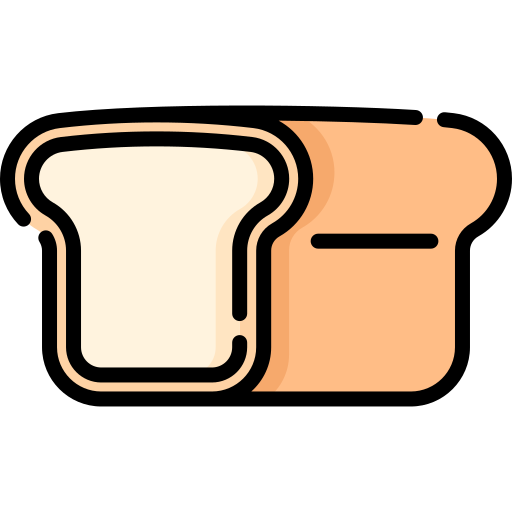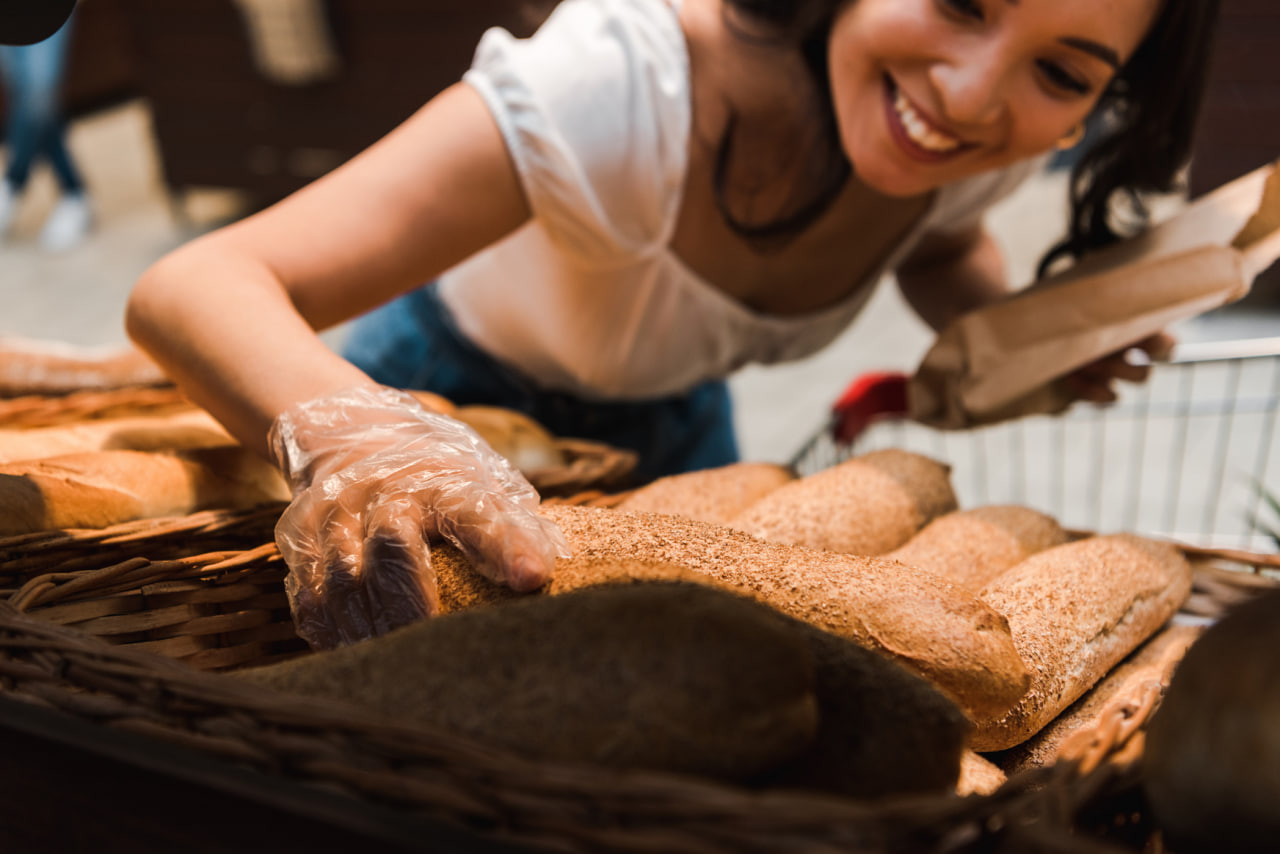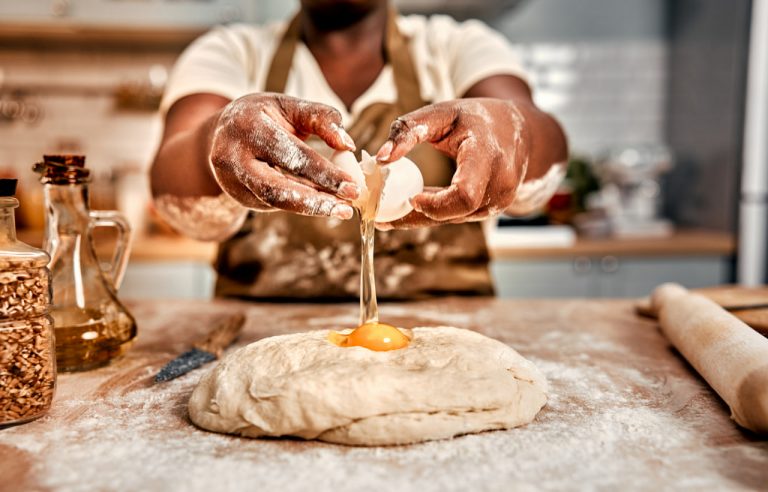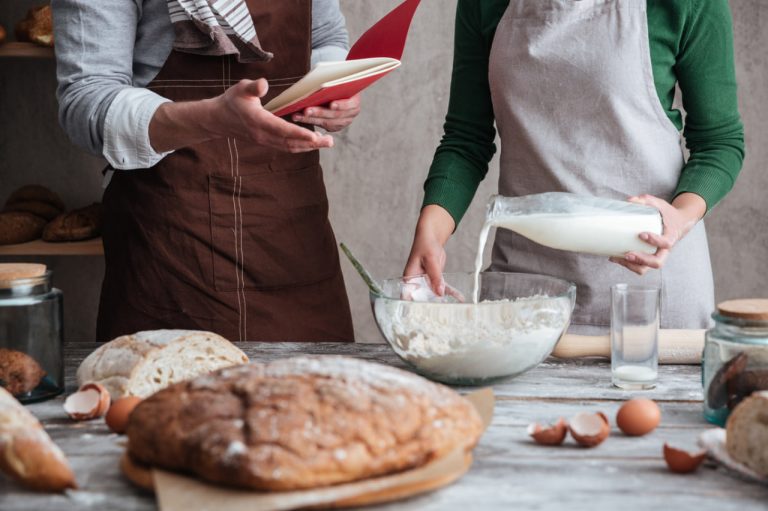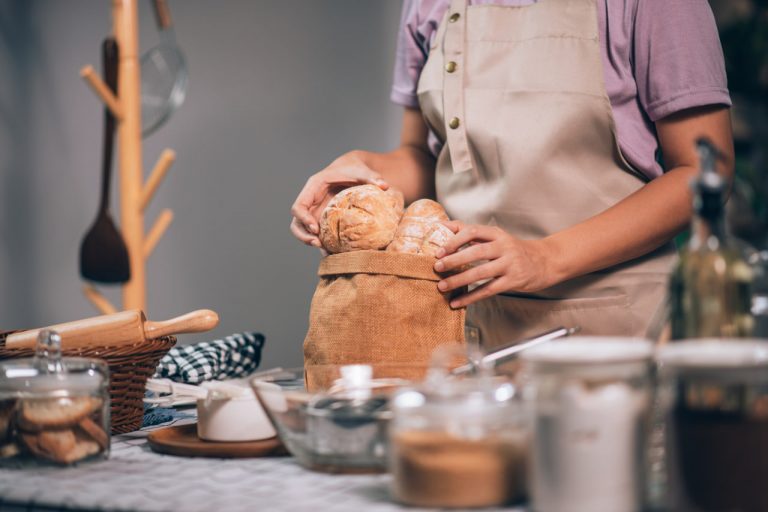Baking artisan bread at home can feel like a magical experience. The transformation of simple ingredients into a warm, golden loaf with a crackling crust and tender crumb is incredibly satisfying. However, to truly master the craft, having the right tools is essential. While it’s possible to bake a great loaf with minimal equipment, using the right tools can elevate your breadmaking skills and allow you to achieve consistent, bakery-quality results every time.
In this blog, we’ll explore the essential tools every artisan baker needs, whether you’re just starting your baking journey or looking to upgrade your current setup.
1. Dutch Oven: For Perfect Crust and Oven Spring
If there’s one tool every artisan baker swears by, it’s the Dutch oven. The Dutch oven is an absolute game-changer for home bakers. The key to a great artisan loaf lies in creating a steamy, humid environment during the early stages of baking. When you place your dough in a preheated Dutch oven, the pot traps moisture, allowing your bread to rise (known as oven spring) and develop that signature golden-brown, crispy crust.
Why You Need It:
- Creates a closed environment that traps steam.
- Helps your dough expand properly during baking.
- Produces a golden, crisp crust, and an airy, well-structured crumb.
While you can get creative with alternatives (such as using a pizza stone and a pan of water), a Dutch oven makes the process incredibly simple and efficient. Plus, it’s great for baking artisan bread like sourdough, boules, and round loaves.
Pro Tip:
Preheat your Dutch oven before placing the dough inside to get the best results. The high heat helps create the ideal crust texture.
2. Baking Stone or Steel: For Even Heat Distribution
A baking stone or baking steel is essential for achieving a perfect, crispy crust, especially for breads like baguettes or ciabatta that require high heat. A baking stone absorbs and distributes heat evenly throughout the dough, simulating the conditions of a traditional brick oven.
Why You Need It:
- Helps to create a crisp, professional-quality crust.
- Provides even heat distribution for perfect baking.
- Simulates the heat of a traditional wood-fired oven.
Baking Steel:
If you’re looking to take it to the next level, a baking steel offers superior heat retention compared to a stone. It absorbs and transfers heat more efficiently, creating a crispier crust in less time. For bakers who want precision, a baking steel is a great investment.
Pro Tip:
Place your baking stone or steel in the middle or lower rack of the oven, and preheat it for at least 30 minutes before baking to get the best results.
3. Bench Scraper: For Precision and Clean Surfaces
A bench scraper, also known as a dough scraper, is a simple but indispensable tool in any artisan baker’s toolkit. It’s used for dividing dough, scraping up flour or dough from your work surface, and shaping loaves with precision. A bench scraper can help you cut dough into equal portions, making it easy to handle sticky dough without making a mess.
Why You Need It:
- Helps you divide dough into even portions.
- Aids in shaping loaves and handling sticky dough.
- Keeps your workspace tidy and free from excess dough.
Pro Tip:
A bench scraper is also a fantastic tool for cleaning your work surface after you’re done. Use it to scrape off excess flour, dough, or debris from your countertop, making your cleanup process easier.
4. Digital Thermometer: For Perfectly Baked Bread
If you want to take the guesswork out of baking, a digital thermometer is an essential tool in your breadmaking arsenal. Understanding the internal temperature of your bread will help you determine whether it’s fully cooked and ready to be taken out of the oven. Different breads require different internal temperatures, so a thermometer ensures you never over-bake or under-bake your loaves.
Why You Need It:
- Ensures your bread is baked to perfection.
- Helps you check the internal temperature to avoid over or undercooking.
- A digital thermometer is more accurate than the “knock test” (tapping the bottom of the loaf).
Pro Tip:
For most breads, the internal temperature should be between 190°F (88°C) and 210°F (99°C). Sourdough and whole grain breads often need a higher temperature, while lighter breads may be done at a slightly lower range.
5. Proofing Baskets (Banneton): For Beautiful, Shaped Loaves
Proofing baskets, or bannetons, are traditional tools used to shape dough while it undergoes its final proofing stage. These baskets give the dough structure as it rises, creating beautiful, round, or oval-shaped loaves with a textured pattern on the crust. While proofing baskets are often used for round loaves like boules, they’re also essential for other artisan breads like baguettes and batards.
Why You Need It:
- Helps shape your dough during its final proof.
- Creates beautiful texture patterns on the dough’s surface.
- Prevents the dough from spreading out too much as it rises.
Pro Tip:
Before using a proofing basket, dust it lightly with flour to prevent the dough from sticking. After proofing, gently flip the dough out of the basket onto your baking surface.
6. Scoring Tools: For Artistic Touches and Proper Expansion
Scoring, or slashing, your dough before baking is an important step for both practical and aesthetic reasons. Scoring allows the dough to expand in a controlled manner while baking, ensuring a uniform rise and preventing the bread from cracking in unpredictable ways. It also creates those signature, artistic patterns that make artisan bread so visually stunning.
Why You Need It:
- Helps the bread expand predictably during baking.
- Allows you to create beautiful designs on your bread.
- Prevents uneven cracking and enhances texture.
Pro Tip:
Use a sharp, thin blade for scoring, such as a lame or a sharp knife. Make quick, decisive cuts to avoid flattening the dough.
7. Kitchen Scale: For Accurate Measurements
Baking is a science, and accuracy is key. While you can sometimes get away with using volume measurements for ingredients, weighing them with a kitchen scale ensures precision and consistency. A kitchen scale is especially important when working with ingredients like flour, where the weight can vary depending on how you measure it.
Why You Need It:
- Provides accurate measurements for ingredients.
- Ensures consistent results every time.
- Essential for working with high hydration doughs.
Pro Tip:
If you’re working with recipes in grams, always tare (zero) your scale before adding each ingredient. This makes it easy to measure multiple ingredients without having to transfer them.
8. Mixing Bowls: For Preparation and Proofing
A good set of mixing bowls is a must-have for preparing dough. They come in handy for mixing the ingredients, proofing the dough, and holding your dough during the bulk fermentation process. Look for bowls that are large enough to hold the dough as it rises, with enough room for expansion.
Why You Need It:
- Ideal for mixing, kneading, and proofing.
- Helps maintain dough temperature during fermentation.
- Stainless steel or glass bowls are best for food safety and easy cleaning.
Pro Tip:
Use a bowl with a lid or cover it with a damp towel during proofing to prevent the dough from drying out.
